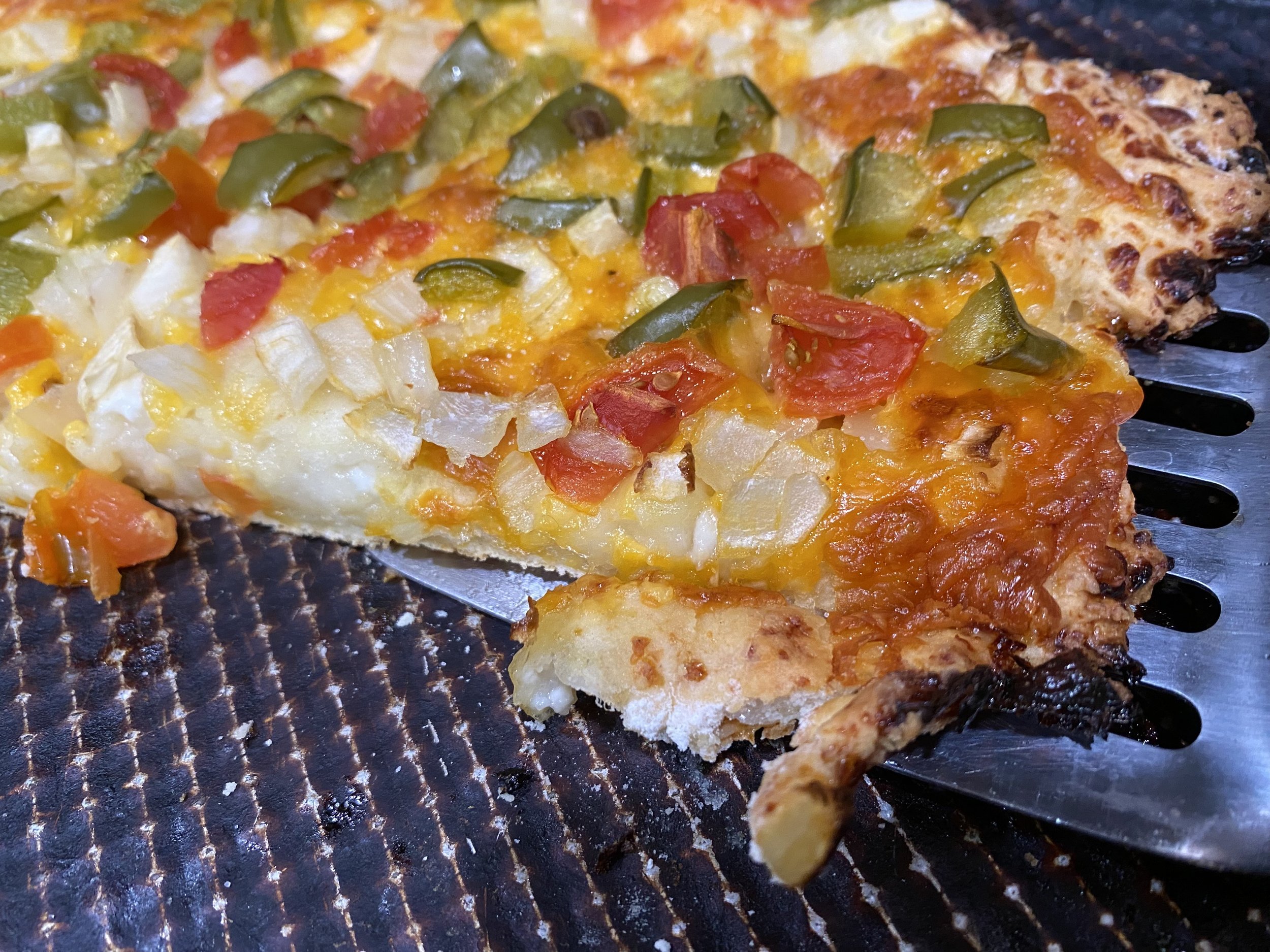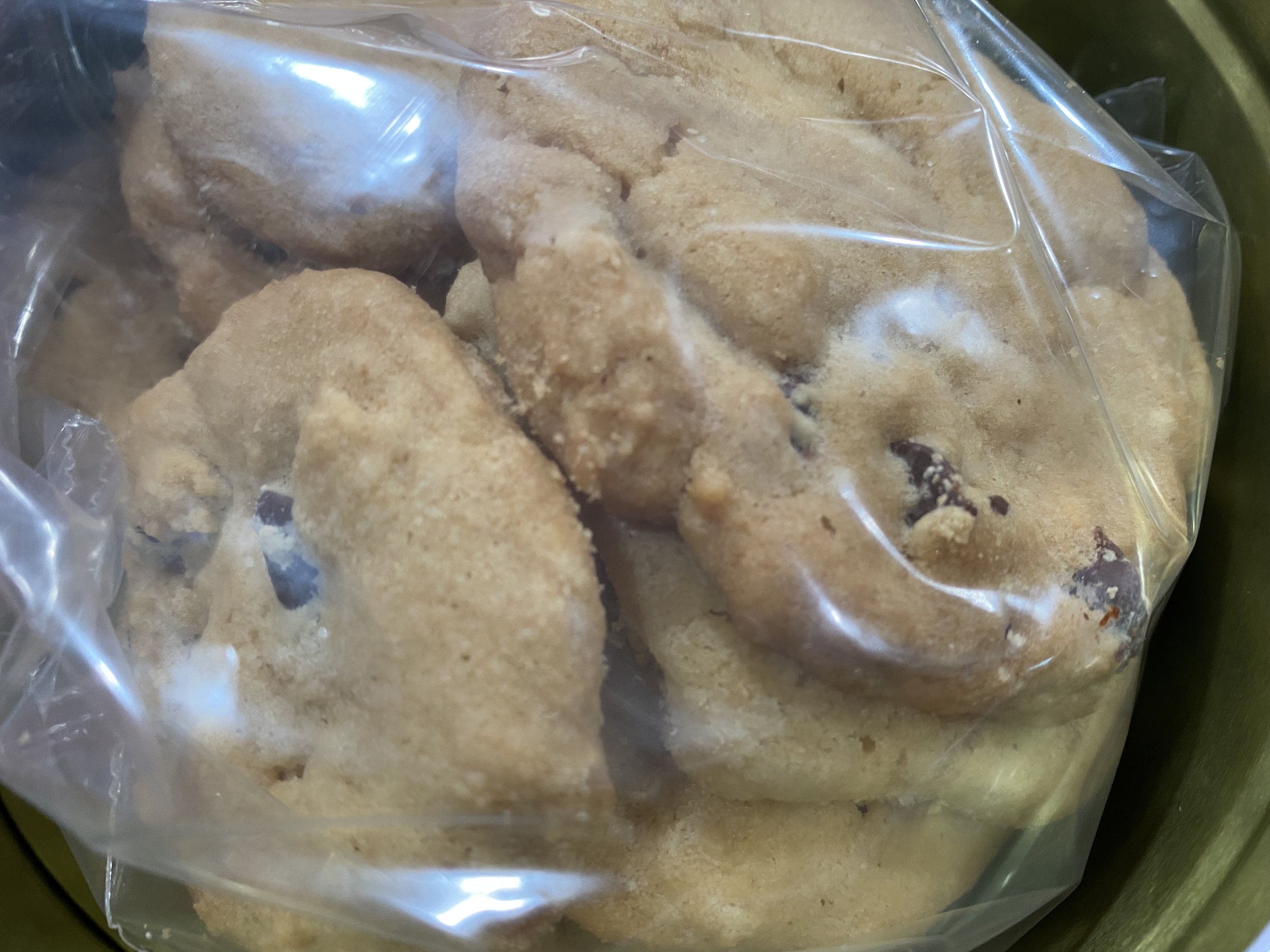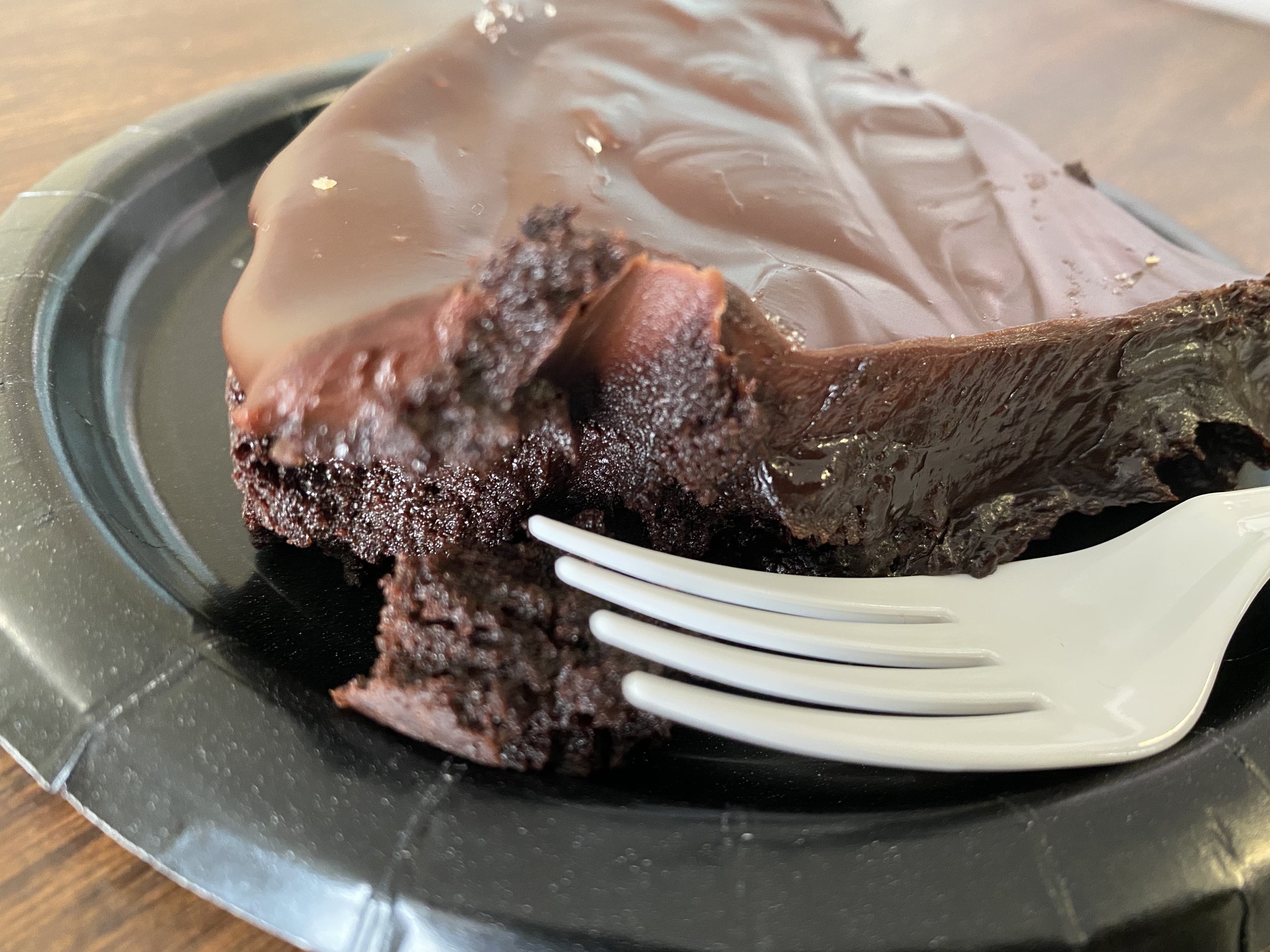A Rind is A Terrible Thing To Waste
/Hoaky, huh, but it's true.
When I started recycling a couple of years ago, I was amazed that more than half my daily garbage was reusable paper refuse. When I then removed items that could be composted, I went from one of those hungamunga green garbage cans I could hardly wrestle down my driveway to a dainty one almost a third of that size - and my little toy kitchen raised bed garden started to have healthier plants, too.
Compost is nothing more than organic matter that's been allowed, and encouraged, to break down into humus or what gardeners call "black gold." Compost is how farmers return nutrients to the soil and make sure their ground is ready to grow specific crops. If you're gardening around here, you can get a soil test through University of Missouri Extension offices so you know what kind of amendments you need to add to your soil. Since we're lucky to have 2-4 inches of good top soil in this area, I figure anything I add to my hilly
garden has to be good. The first concern I hear about compost is smell. There are several ways to easily manage that:
- Keep a plastic bag in a freezer bin and toss compost-bound materials in there. When the bag is full, take it out to the composter.
- Get a self-enclosed composter. I like the ones that have a handle on the side so they can easily be turned. Closed composters keep wildlife out and manage odors. Or try the Dr. Stevie black bag composting technique, named after my youngest brother who one summer had a gold mine of composted leaves when he forgot he had bagged them the fall before and piled them behind his gardening shed. If you have wildlife or neighborhood pets, don't expect them to respect plastic. My brother's cucumber-ravaging bunny rabbits chewed a hole in one of his black bags after we tossed watermelon rinds in.
- Use odors to tell you when you don't have the right combination of brown materials and green materials. If you have the right combination, the compost mixture should not smell. You basically need equal parts of brown leaves, grass clippings and kitchen scraps sprinkled with water and regularly mixed or tumbled.
Compost needs warm weather to work but I still drag my buckets of material to my composters through winter. Although nothing is breaking down when it's cold, the composters are all set when weather does start warming up. You can compost a variety of things including egg shells; fruit and vegetable peels and related left overs, but not seeds. Well, go ahead and toss seeds into a composter when its warm. I'm guessing that's how the Jack In the Bean Stalk fairy tale story got started!
You can also compost straw, grass, leaves, dryer lint, hair and shredded newspaper. Do not compost meat, poop or bones. If you're just starting to compost, invest in a pair of kitchen chicken-cutting scissors. Mine live in the drying rack in my sink so I can easily access them when I'm cooking. I save organic leftovers in a bowl; when I'm through cooking, part of the clean up is to use the scissors to cut all organic matter into small pieces. It takes up less storage space that way, and decomposes faster. When compost turns black and crumbly, it's ready to add to your garden soil. Once you get into a routine, I'll bet you'll be surprised at how much less you have in your garbage, and how much better your garden is growing.











